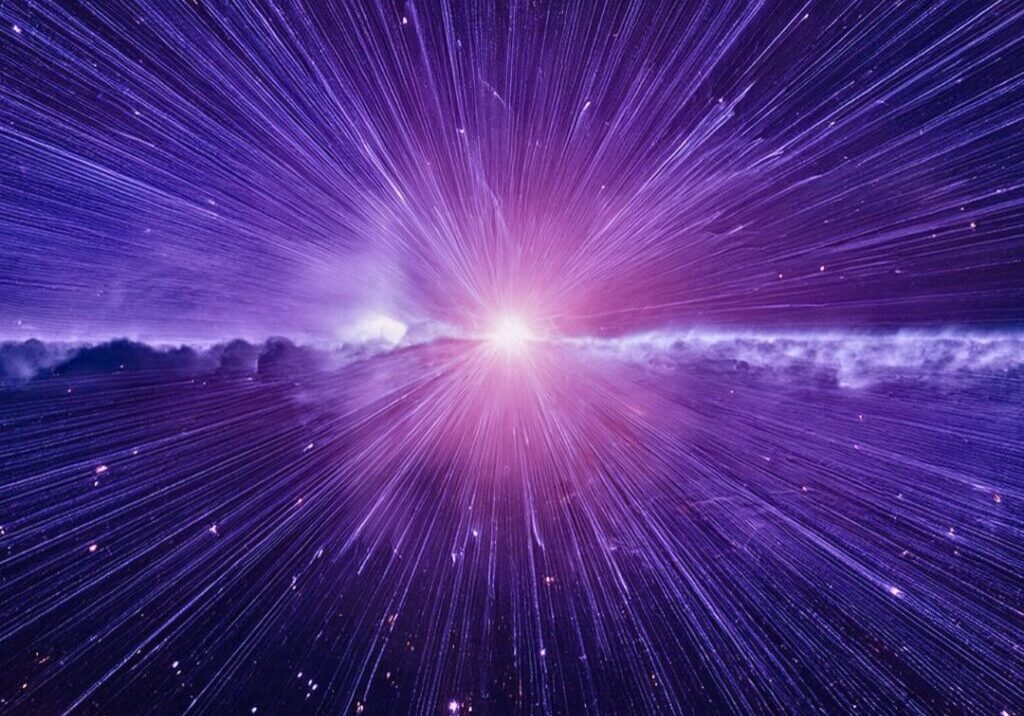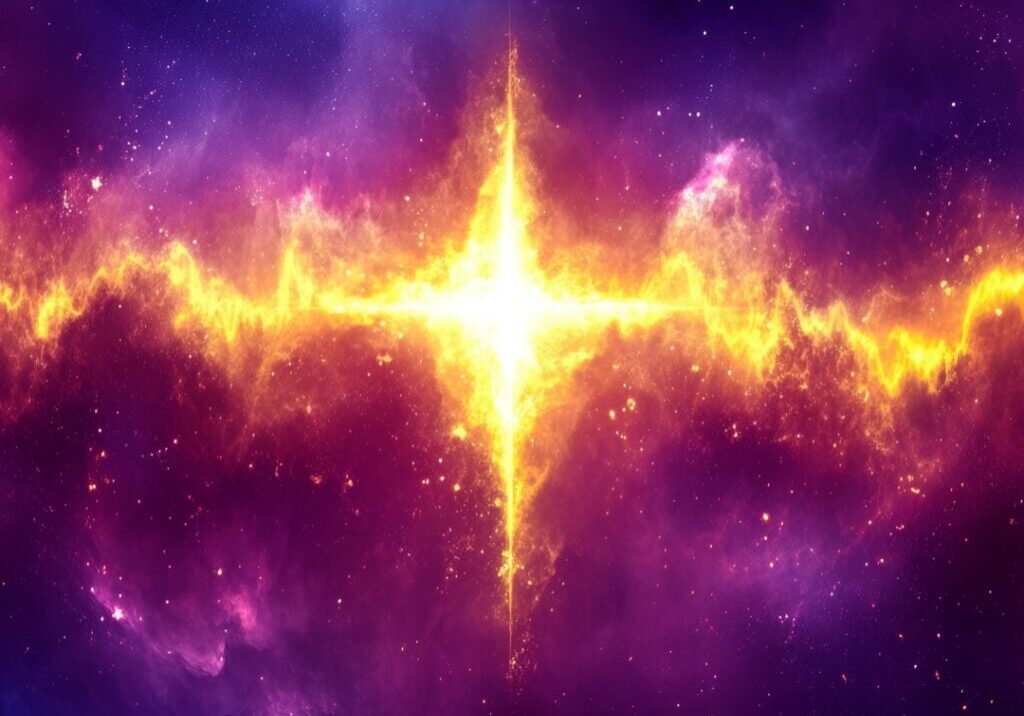God and the World in Teilhard
In April 1934, Pierre Teilhard de Chardin wrote to Henri du Lubac, a fellow Jesuit, “I mistrust metaphysics (in the usual sense of the word), because I smell a geometry in it. But I am ready to recognize another sort of metaphysics which would really be a hyper-Physics,—or a hyper-Biology.”[1] In The Human Phenomenon, the book for which he is most famous and which he so urgently wished to see published, Teilhard again spoke of hyperphysics, this time as a characterization of the attempts of scientists like Poincaré, Einstein, and Jeans “to give a general scientific interpretation of the universe.”[2] One is led to believe that Teilhard’s project is also a hyperphysics that stops short of metaphysics in the sense of an examination of the essence of being. The reader is assured that The Human Phenomenon is to be understood as neither metaphysics nor theology, but solely as a “scientific study.”
In so drawing the boundaries of his work, Teilhard most surely had in mind the Church censors who had consistently forbidden him to publish anything of a metaphysical or theological nature. Yet, he walked a fine line, for he knew that the work would also be criticized by scientists for straying beyond the boundaries of science, as some conceive them. He was realistic enough to understand that he would have both the “pure scientists as well as the pure disciples of metaphysics” against him, as he explained in a letter to his friends Max and Simone Bégouën in May 1940.[3] He was not mistaken. Peter Medawar, the Nobel Prize winning biologist, published an uncharitable review that is now legendary for its harshness, calling Teilhard’s book “philosophy-fiction.”[4] The great medievalist, Étienne Gilson, was more gentlemanly; he avoided ad hominem attacks, but he neatly balanced Medawar’s language by speaking of Teilhard’s work as “theology-fiction.”[5]
In the letter to de Lubac referenced above, Teilhard explained that he instinctively distrusted reasoning that is “abstract, geometrical, extra-temporal,” a “pseudo-absolute knowing” grounded in “the world of ideas and principles.” This sort of knowledge, he believed, ends up in “Geometry (and Theology).” Of course, distrusting a form of reasoning is not the same as rejecting it tout court, and we have no evidence that Teilhard was in principle opposed to either geometry or theology. However, he looked askance at deducing theorems about the world or God from self-evident (or seemingly self-evident) axioms. He was trained as a scientist and it is with the methods of science that he felt most at home. On the other hand, he was a Jesuit priest, with a good deal more education in both philosophy and theology than most scientists receive.
When Teilhard was less concerned about censure from Church authorities, he did not hesitate to venture into metaphysical speculation. As is well-known, he advocated a “metaphysics of union,” a creation of an evolutionary type, according to which the order in which things appear temporally is the very order in which they are created; as he wrote in 1917, “Every new union to be effected increases the absolute quantity of being existing in the universe.”[6] For Teilhard, divine creation is not, as in Thomism, a kind of logical relay in which anything whose concept does not involve a contradiction can be brought to exist ex nihilo. Organisms, species, and even ecosystems emerge in the course of time only because they have been made possible by the conditions that preceded them. “All things are born from what existed before them.”[7] God’s role, in large measure, is “to make things make themselves.”[8] For Teilhard, God undergirds the radial energy that builds ever more complex organisms from simpler ones. Following the ascent of complexification, Teilhard was convinced that he saw a direction to the evolutionary process towards supreme complexity, a personal center in which the uniqueness of all psychical centers is intensified—an Omega Point. “True union,” says Teilhard, “does not fuse the elements it brings together,” rather it renews their vitality. In one of his signature phrases, “Union differentiates.”[9]
Teilhard’s metaphysics of union requires a more dynamic concept of the material world than what was assumed by the ancients or even by the early modern scientists, a concept more in keeping with the deliverances of the sciences that peer ever more deeply into the microscopic and subatomic worlds. Teilhard denied the existence of matter conceived as something lacking in all consciousness or spontaneity.[10] He is famous for positing both a “within” and a “without” of things, envisioning multiple levels of mentality or experience as a function of the complexity of organisms. If the idea of God making things make themselves challenges traditional thinking in theology by attributing genuine creativity to the creatures, Teilhard’s peculiar panpsychism—or better, panexperientialism—is a challenge to rethink the dominant paradigm of a merely behavioristic approach to physics, biology, and psychology. It is no wonder that he has had more traditionally minded theologians, as well as more traditionally minded scientists, against him.
What Teilhard brings to the questions of the relations of religion and science is a refreshingly new principle which, though I don’t see it stated explicitly in his work, seems to be the presupposition of his intellectual and spiritual endeavors. The principle, simply stated, is: concepts of God and of the world are corelative, they have implications for each other. For example, if God is conceived as one who surveys all of creation in an eternal changeless instant, then the world must be conceived as the sort of thing that can be so surveyed. But if, as Teilhard argued, the world should be conceived as coming to be in a piecemeal fashion as new complex forms emerge, then God must be conceived as knowing and interacting with it in a manner befitting its dynamic nature. When Teilhard asked, “And who then will finally give evolution its God?”[11] he understood that there are ramifications for theology in evolutionary or transformist thinking. He was severely critical of traditional ideas of divine power. Moreover, he realized that the concept of God as wholly lacking in complexity, as in the God of pure act, would be a casualty of his metaphysics of union.[12] To be sure, there is what he once called a “philosophical evolutionism” that altogether excludes the action of God.[13] But there is no reason for supposing, a priori, that there is no place for divine activity in the processes of evolution. As he wrote to Fr. Pierre Leroy in 1951, a reform is needed in the very concept of God.[14]
For Teilhard, conceiving God’s role in evolution is not a question of introducing a deus ex machina after the fashion of the defenders of “intelligent design,” where God is needed to infuse new information to help evolution over its bumps. Such a deity is depressingly terrestrial, and distressing ad hoc, making of divine activity a variable in scientific calculations. Teilhard sought, on the contrary a God equal to the cosmos itself, and more precisely to cosmogenesis—a universe of almost unimaginable temporal dimensions, a cosmos with direction, and one that may, in some fashion, be in the process of being directed. Teilhard articulates what amounts to a more or less coherent metaphysical narrative of cosmic evolution. I say “more or less” since it is, after all, a product of one man’s vision, and no one escapes the inherent condition of human fallibility. It is left to others who find value in that vision, to use it or to improve upon it. Of course, this requires an attention to science while moving well beyond its fields into the wilderness of metaphysics. What seems blazingly clear to those of us who look to Teilhard as a pioneer, is that he tried to reimagine the perfection of God in evolutionary, or transformist, terms. He is not the only one to do this, but he is one of those who saw with exceptional clarity the need for, and the conditions for the construction of, a properly processive theology.
Notes:
[1] Lettres Intimes de Teilhard de Chardin à Auguste Valensin, Bruno de Solages, Henri du Lubac, André Ravier: 1919-1955. Introduction et notes par Henri de Lubac (Paris: Aubier Montaigne, 1974): 273.
[2] P. Teilhard de Chardin, The Human Phenomenon, translated by Sarah Appleton-Weber, (Brighton, UK and Portland, Oregon: Sussex Academic Press, 1999): 2.
[3] P. Teilhard de Chardin, Le rayonnement d’une amitié : Correspondance avec la famille Bégouën (1922-1955), eds. Michel Hermans and Pierre Sauvage (Brusseles: Lessius, 2011): 167.
[4] Peter Medawar, Pluto’s Republic (New York: Oxford University Press, 1982): 249. See also D. W. Viney, “Teilhard, Medawar, and the New Atheism,” in Ilia Delio, ed., From Teilhard to Omega: Co-Creating an Unfinished Universe (Maryknoll, New York: Orbis Books, 2014): 127-148.
[5] See Gilson’s letter to André Boulet: https://tradinews.blogspot.com/2004/10/aletheia-n64-une-lettre-inedite.html, accessed Sept. 1, 2019.
[6] P. Teilhard de Chardin, Writings in Time of War, René Hague, trans. (NY: Harper & Row, 1968): 163.
[7] P. Teilhard de Chardin, The Vision of the Past, J. M. Cohen, trans. (NY: Harper & Row, 1966): 130.
[8] P. Teilhard de Chardin, Christianity and Evolution, René Hague, trans. (NY: Harcourt Brace Jovanovich, Inc., 1971): 28.
[9] P. Teilhard de Chardin, Human Energy, J. M. Cohen trans. (London: Collins, 1969): 63.
[10] P. Teilhard de Chardin, Activation of Energy, René Hague, trans. (NY: Harcourt Brace Jovanovich, Inc., 1971): 125.
[11] P. Teilhard de Chardin, Comment je crois (Paris: Editions du Seuil, 1969): 288; for Hague’s translation of the phrase, see Christianity and Evolution: 240.
[12] On divine power, see Lettres intimes: 302 and Christianity and Evolution: 30-33; on the God of “pure act” and the complexity of God, see, Human Energy: 68 and 70.
[13] P. Teilhard de Chardin, “L’Évolution,” Courrier des Cercles d’études, Paris 1911: 227-232. Also in Pierre Teilhard de Chardin L’Œuvre Scientifique, Textes réunis et édités par Nicole et Karl Schmitz-Moormann, Tome I, 1905-1923 (Olten und Freiburg Im Breisgau: Walter-Verlag, 1971): 69-74. See especially page 72.
[14] Pierre Leroy, ed., Letters from my friend Teilhard de Chardin. Mary Lukas, trans. (NY: Paulist Press, 1976): 89.
 View print-friendly version
View print-friendly version
4 Comments
Related Posts

Lessons for Our Time
We recently concluded our annual conference on the theme “Religion in an Age of Science,” in which all the speakers agreed that religion can no longer remain credible without the…


While I realize Teilhard experienced unspeakable darkness through rejection, his brokenness healed him. I believe what kept him functioning at such a profound level was his deep mystical awareness of Omega which is so richly displayed in his writing. While he had the intellectual hunger and drive to continue pursuing the field of science, he also had tasted the timeless present, the absence of a “me” and an unbearable love words can’t touch. He received the gift of Understanding beyond measure. I think of him often as the stretcher bearer, especially now.
Mary Pat, your comment reminded me of Jean Houston’s remembrance of having met Teilhard when she was still a child. I wonder if you have read it? It is in her book Lifeforce, The Psycho-Historical Recovery of the Self (Delacorte Press, 1980), pp. 218-220. It is a wonderful glimpse into Teilhard’s state of mind as he interacted with a child over the course of the year before he died. He met her in Central Park and they would go on walks together, with her dog. He would speak to her of the wonders of the universe of which she and he were a part and he would whisper, “Omega . . . omega . . . omega.” Houston remembered telling her mother about the old man (whose name she knew only as “Mr. Tayer”): “When I am with him, I leave my littleness behind.” When she had grown, someone lent her a copy of The Phenomenon of Man and when she saw the photo of Teilhard she realized that this was the man who she had met those many years ago. If you cannot locate a copy of this book, I have a file with the relevant selection that I can send to you. My email is don_viney@yahoo.com or dviney@pittstate.edu
“a reform is needed in the very concept of God” This is pivotal to our very survival ( includes our one home planet)
Thank you for this post. I especially liked how you said, “It is left to others who find value in that vision, to use it or to improve upon it”. I find that encouraging and a call to action.